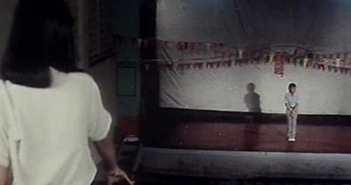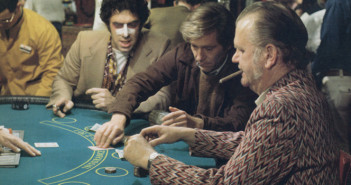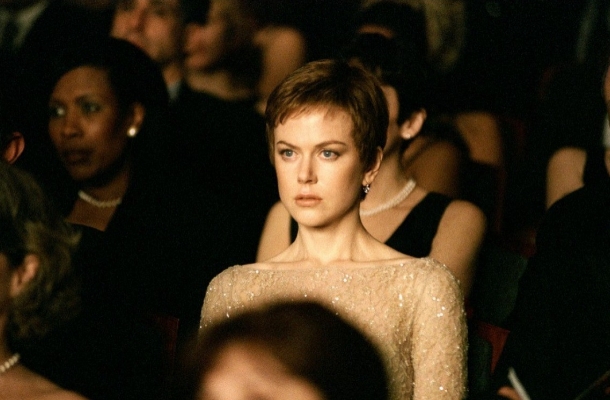About one-third of the way through Jonathan Glazer’s Birth comes its narrative and stylistic turning point: for a nearly three-minute unbroken long take, protagonist Anna (Nicole Kidman) gradually realizes that she believes in ten-year-old Sean’s (Cameron Bright) claim that he is her husband reincarnated. Having tardily made her way into a packed concert hall with her new fiance (Danny Huston) after Sean’s adamant refusal to recant his story, Anna stares past the camera as Wagner swells on the soundtrack, representing the roiling emotional turmoil beneath her placid, fragile gaze. That single shot — audacious, severe, just as aural as visual, and entirely reliant on Kidman’s focused, interiorized performance — encapsulates the film’s overall strengths and weaknesses. Engaging yet self-consciously bravura, the oppressive zoom frames the lead actress’s face and lets duration and minute gesture relay what meaning it contains. It’s a moment that may try one viewer’s patience while piquing another one’s, becoming emblematic of the film as a whole.










